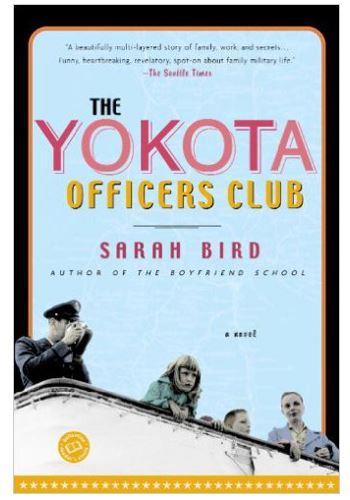Powdered Ice Cream
From Peggy (Thornblom) Campbell:
My dad was stationed with the 11th Airborne Division at Camp Schimmelpfennig, Japan, outside of Sendai, after fighting in Europe during World War II. My mother, brother and I joined him by troop ship from Seattle in the spring of 1947, at the end of my first grade year. Our experiences there look bizarre from 60 years away, but we all thought it was perfectly normal at the time. Are Army brats adaptable, or
what?
We lived in a guarded, chain-link and barbed-wire-surrounded housing area called, of all things, Pico del Oro. An Army bus shuttled us back and forth to the camp, where I remember a movie theater, skating rink and PX. No American money was used. We all had to spend scrip, which changed color every so often to thwart counterfeiters.
For the first year, we weren’t allowed to leave the housing area unescorted, and travel was restricted. Only during our second year did things open up a bit and we were allowed to visit some of the sights. I specifically remember a train trip to ski in Sapporo, and a vacation at Lake Biwaka at the foot of Mt. Fuji.
The town of Sendai had no paved streets. There was a single “department store”, one story, with a dirt floor.
At the housing area, students were taught by mothers in various homes until the arrival of the first teachers from the States, and the completion of a school building that summer. The school population was small, probably no more than 50 students, and there were several grades in each room. A small commissary was next door to the school and a medical clinic was right across the street. Students were lined up periodically and marched en masse to the clinic for inoculations. A couple of nights a week movies were shown in the school auditorium and a temporary beauty parlor for the ladies operated there on certain days, as well. The school auditorium was the community meeting place for Scouts, little theater, Women’s Club meetings—you name it.
We children played in a lot of places we weren’t supposed to. I can remember roaming the grounds of small temples and balancing as we walked around the edges of rice paddies, all strictly off limits. I don’t know how we managed our escapes into forbidden territory, but manage we did. What a hoot it was.
No fresh fruit, vegetables or milk were available. We couldn’t buy locally grown food because of the contamination of night soil used by the Japanese farmers as fertilizer. Everything was canned or dried and, of course, this was long before the time of frozen anything. We even had powdered ice cream. Unfortunately, our first refrigerators had no freezer compartment, so we weren’t able to mix up a batch for several months. And, horror of horrors, we had no bubble gum!
To help in the recovery of Japan’s economy (little did we know what a recovery it would make!) everyone was asked to hire as many Japanese servants as they could, and to feed them three meals a day. We had four (!) servants. Since we had no washing machines, our laundress put our clothes in the bath tub, then stomped on them to get them clean, repeating the process to rinse.
The 11th was de-activated, and we came home again in 1949, also by troop ship. It took thirty days, with a route through Hawaii and the Panama Canal to New Orleans, final destination Fort Campbell, Kentucky No luxury liners, these, believe me—it was strictly no-frills. The wives had to sign up for times to do their laundry themselves. We ate in shifts. The only entertainment was movies shown in the dining room after dinner. When we arrived in Hawaii, boats welcomed us by throwing bananas to us—the first we’d seen in over two years.
Over twenty years later, I stepped off the plane in Okinawa as an Army wife. Riding in from the airport, a familiar smell hit me that brought back all these memories—–yep, it was the lovely aroma of rice paddies! I’d recognize it anywhere!


